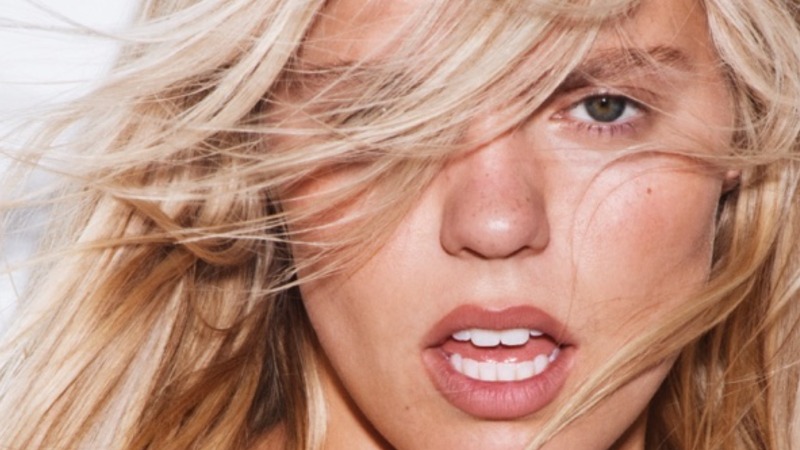Reneé Rapp Is Full of Movement But Going Nowhere on BITE ME
The pop singer’s second full-length LP is an uneven, sometimes frustrating listen, where fleeting sparks are buried beneath an unfocused sound and loose vision. Even the strongest moments feel off-center.

In some corners of the pop culture ecosystem, the 2020s have been the de facto Decade of Reneé Rapp. She’s quite literally participated in every form of media—or at least every form that could get you an EGOT—more often than not as Regina George or some “if-Regina-George-was-closeted” adjacent. She dropped an EP, then a debut album. She promoted said album at the same time she promoted the movie based on the musical she’d already done. She played Coachella. She did Saturday Night Live and came out as a lesbian mid-sketch, sandwiched between Bowen Yang and Jacob Elordi. She went public with her girlfriend, fellow musician Towa Bird. She got a wolf cut, never took off her sunglasses, and went even deeper into her brazen, assertive, fearless identity. Rapp was starting to take form as her truest self, and we all loved to see it! Even if we mourned the loss of her Sex Lives of College Girls character Leighton Murray.
For nearly five years, Rapp had been everywhere. Then she wasn’t. The end of 2024 into early 2025 was about Rapp living for herself. She dove into her relationship and her sexuality, frequenting East LA lesbian bars with friends like Cara Delevingne (a friendship that’s now matching costume-level close). The focus was on spending her time how she wanted instead of how others expected. BITE ME, Rapp’s sophomore LP, is the result of that search for identity, born out of the state of utter burnout she experienced during the first half of the decade. It finds her shedding her previous selves, her armors, and leaning into authenticity. For Rapp, BITE ME is all of the facets that make up her truest self. She’s here to remind us all of the multitudes we exist in.
It’s just that that “self” doesn’t feel fully realized, and those “multitudes” don’t always form a clear throughline. The only thing holding them together seems to be Rapp’s DGAF attitude (her couldn’t-be-bothered drawl, her now-canonical lack of media training, her seemingly nonexistent shame). And that’s compelling in its own right. Rapp herself is compelling in her own right. Her vocal chops can’t be denied (I’d argue she’s Gen Z’s answer to Adele), she’s clearly multifaceted, and most of the time her personality leans charming rather than tiresome. But something about her keeps me from fully buying in. Her multi-dimensionality, in all its glory, blurs the pop stardom she’s been striving for this whole time.
This has only been exacerbated by the BITE ME press tour, where she’s seemed to talk about everything but her music. She was on the cover of Cosmo, did Amy Poehler’s podcast, sat for the Vanity Fair lie detector test, and was interviewed by Ziwe. And that was all undoubtedly entertaining, but where’s the Variety “Behind the Song”? Or a Zane Lowe sitdown? Or even a 45-second Pitchfork Perfect 10? Her choices (if not directly her’s, then her team’s) give the impression of personality first, music second. Especially when the content of those interviews offers little to no insight into songwriting or creative processes, and instead relies solely on her inherent chaos, which thrives off pure sarcasm, or stretching the truth, or being so brash that the interviewer can’t tell if she’s being legit or not.
This is all to say that I was already skeptical going into BITE ME. Rapp announced the record with “Leave Me Alone,” her sassy, bass-heavy declaration of independence in which shade is thrown and speculations abound (“Took my sex life with me now the show ain’t fuckin’” sent shockwaves through Twitter/X feeds and group chats everywhere). It simultaneously acts as “This is what I’ve been up to” answer to her months under the radar while reminding everyone she still DGAF. It’s catchy, if not corny, almost reluctantly so. The hook often bounces around my skull hours after listening. The chorus is straightforward about Rapp’s new ethos: “I wanna have fun.”
-

-

-

-

-

-

-

-

-

-

-

-

-

-

-

-

-

-

-

-

-

-

-

-

-

-

-

-

-

-

-

-

-

-

-

-

-

-

-

-








































